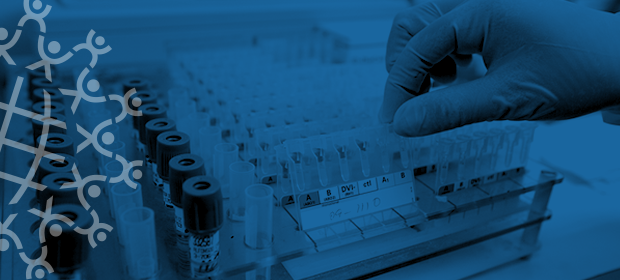Where We Work
See our interactive map


As nurses prepare to gather in Seoul, South Korea, later this week for the annual International Council of Nursing’s 2015 Conference, the country is experiencing an alarming outbreak of the Middle East Respiratory Syndrome or MERS Coronavirus.Just last Thursday, South Korea announced the closure of a second hospital following the confirmation of four new cases of MERS. The country’s most recent case count stands at 153, with 19 deaths, as of June 16. This deadly virus has a survival rate of only 64%, and more than 5,500 people have already been quarantined. As of last Friday, 2,900 South Korean schools and kindergartens were closed around the country. Decisions to temporarily close the Mediheal Hospital in western Seoul and Changwon SK Hospital in Changwon resulted from new information that MERS patients were found to have had contact with hundreds of people at the two hospitals prior to diagnosis. Certainly, there is no time to lose. The global community learned this the hard way recently in West Africa. It was only just over a month ago, on May 9, 2015, that the world took a sigh of relief as the World Health Organization officially declared Liberia Ebola-free. Guinea and Sierra Leone, while making progress, are still struggling to bring Ebola to an end.
Ebola may be under control in Liberia and disappearing from headlines, but we are far from meeting the health needs of our populations—and even further from being prepared for the next pandemic.
One year ago, we would have never imagined an Ebola epidemic of this scale raging through West Africa, threatening the health and well-being of bordering populations and destabilizing health security across the globe. Six months ago, we were having a hard time envisioning an end to this nightmare.Although the initial response was slow, the global community gained momentum in supporting Liberia with the materials, medicines, and health workers desperately needed by the country’s weak national health system. During the scale up of this organized response, we lost many lives—precious lives—and the global community learned some hard lessons.
First and foremost, we realized that none of us are protected from such a sudden and unexpected outbreak whether in an American urban area such as Dallas, Texas–where one life was lost, two health workers quarantined, and an emergency room closed–or in Monterrado, a remote county in Liberia where 8,881 Ebola cases were confirmed and 3,826 lives lost. The countries suffering the most are those with weak health systems. Weak health systems are not exclusive to the West African countries hardest hit by Ebola. In many countries, over 70% of rural residents lack essential health coverage precisely because they lack the health workers they need to serve their communities.
Ebola may be under control in Liberia and disappearing from headlines, but we are far from meeting the health needs of our populations—and even further from being prepared for the next pandemic. Even prior to Ebola, Liberia’s population suffered from a high incidence of preventable deaths. In 2010, the country had the eighth highest maternal mortality ratio globally, with 770 maternal deaths for every 100,000 live births. Malaria, diarrhea, and respiratory infections are the leading causes of death. Most of those deaths would be avoidable if skilled health workers were available with basic material and medicines. We are all vulnerable, even those of us privileged to live in better-staffed and equipped health systems. Between 2002 and 2003, severe acute respiratory infection, or SARS, killed 44 people in Canada, 299 in Hong Kong, and 775 globally. In 2009, the H1N1 virus killed more than 18,000 people around the world. In 2012, the West Nile Virus—spread through mosquitos—killed 16 people in three Texas counties within three months. Although the CDC does not yet release data on the exact number of influenza related deaths per year in the United States, as many as 49,000 people may have died during the 2006-2007 flu season alone from influenza.
Nurses know all too well that global threats are felt locally.
In a recent interview, Bill Gates warned the world against complacency. Although we may be tempted to breathe a sigh of relief right now as Ebola appears to be on the wane, we must make some drastic changes to ensure our relief is not short-lived. “If anything kills over 10 million people in the next few decades, it is most likely to be a highly infectious virus, rather than a war. Not missiles, but microbes,” says Gates. At IntraHealth International, we are working to help countries be battle-ready in the face of both current and future threats. We advocate for investing in health systems and the health workers that make them function because we understand the immeasurable return on such investments. Current initiatives including our mHero mobile phone communication platform, our iHRIS suite of health workforce information software, and our health worker crowdsourcing application are empowering health workers with the information they need to respond rapidly to health emergencies as and when they emerge.
We hope that lessons learned from the tragic Ebola outbreak have become abundantly clear to the global community.
As nurses start to gather together in Seoul to deliberate the conference’s theme of “Global Citizen, Global Nursing” amidst a new global health security threat, nurses and other health workers around the world are risking their lives to do their jobs. Nurses know all too well that global threats are felt locally, as they work every day with frontline teams to support clients in life-or-death battles.
Mr. Gates, we hear your call. Winning the fight to strengthen global health security will require strong commitments of global and local actors. We must be ready and willing to take on tomorrow’s public health emergencies and prevent and treat today’s diseases. To do that, we must build resilient health systems and ensure that all of us have access to a health worker, ready and equipped for the battle.
Get the latest updates from the blog and eNews




